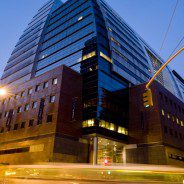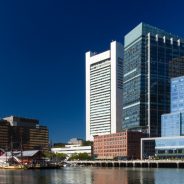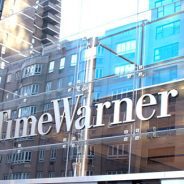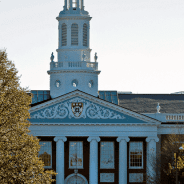Search results for :
Paul Merage School of Business Full-Time MBA Earns Spot On Forbes’ Best Of List
The Paul Merage School of Business at the University of California, Irvine received some heavy honors from the recently-revealed Forbes list of the “Best Business Schools” in the U.S., which analyzes how much graduates typically earn five years after graduation. This year, the business school ended up 41st on the list overall, with a $47,000 USD five-year expected gain for full-time MBA grads.
Continue reading…
Canada’s MBA Programs are Rising
The recent release of the GMAC 2017 Prospective Students Survey Report revealed some mixed revelations. While the status of smaller U.S. school MBA programs may be up in the air, international programs, particularly in Canada, are looking rosier than ever.
Overall, schools in Canada and Europe saw a 50 percent-plus increase in application volume from international candidates, of which GMAC speculates may be a result of political turmoil, particularly in the United States. This is a direct contrast from four years prior, in which less-than half of the Canada, UK, and other European business schools were seeing international applicant growth.
In the GMAC survey, an anonymous Canadian full-time MBA also noted, “The US presidential election has had a impact on our application numbers. Many international students choose Canada as their first choice.”
Niki da Silva, the Managing Director of the full-time MBA program at the Rotman School of Management at the University of Toronto, recently spoke with the Globe & Mail after the release of the report, saying, “This is our opportunity. We have to be anti-Canadian in this moment and really talk about what we are doing. We don’t tend to do that but we need to.”
By The Numbers
Results from the survey found subtle yet distinct differences between the international applicant pools in the major MBA location destinations.
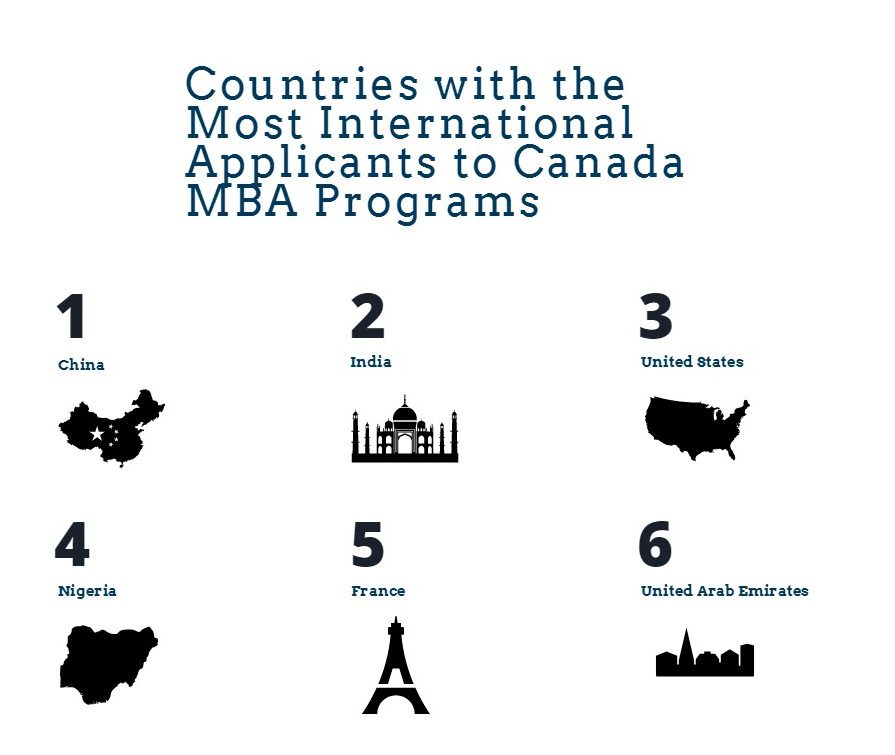
In the United States, Europe, and Canada, according to GMAC, the two most prolific countries with international applicants were unilaterally India and China, which came in either first or second place for each region. However, for Canada, the remaining top 10 international countries with high applicant pools differed slightly from the U.S. and Europe, especially regarding Middle Eastern and North African countries. The United Arab Emirates (6th most), Tunisia (9th), and Iran (10th) were no where to be found in either the U.S. or European top ten.
Breaking the applicant pools down further, GMAC found an unsurprising correlation between the distribution of citizenship by application for Canada and the U.S. and the new data trends. After Europe, which had the most diverse applicant pool (a tricky stat since Europe is qualifying every country on the continent, while the U.S. and Canada are counted as singular entities), Canada had the world’s second biggest international pool of applicants, with less than 50 percent of Canadian business school students having official Canadian citizenship.
Domestic applications, in contrast, are actually down. But the international pool in Canada is swelling, creating substantial overall growth.
“International applicants comprised the vast majority of applications to business programs in Canada—64 percent of MBA applications and 88 percent of business master’s applications.” – GMAC
Gregg Schoenfeld, GMAC’s Director of Research, also noted upward trend for Canadian schools, saying, “This is the first time in the past five years that the majority, in fact three-quarters [of Canadian schools in the survey], are saying they are growing international volumes.”
“From a speculative point of view, it seems that the U.S. political climate has essentially driven candidates to Canada,” he continued.
YOU MIGHT ALSO LIKE: The Highest Starting Salaries for Toronto MBA Grads
The move to enroll more international applicants in Canadian schools started to emerge several years ago. Following lower periods of domestic enrollment, Canada’s MBA programs made a concerted effort to bring in more talent from abroad, creating a multi-year spring in growth that has not only benefited school enrollment, but fostered a positive international environment.
According to Global Affairs Canada, the result has been a positive economic boon as well. Upwards of 90,000 new jobs were created for Canadians just two years prior, while adding $10 billion to the country’s economy.
Tim Daus, Executive Director of the Canadian Federation of Business School Deans, previously noted that the trend was partly made possible because of the country’s flexible immigration policies, saying, “Canada’s visa requirements are much more flexible than other countries’, which gives us an edge. That makes a big difference for students who want to stay and work afterwards.”
Canadian Accolades
The substantial growth Canadian business schools have seen may not solely be the result of political overtones, rather, that many of the country’s best institutions only continue to improve.
The Schulich School of Business at York University in Toronto earned some hefty recognition from Forbes‘ recently released “Best Business Schools” global rankings, earning the 8th spot among the best international two-year program in the world. Schulich grads, Forbes claims, can expect a five-year net gain of over $48,000.
Last year’s Bloomberg BusinessWeek ranking of the best non-U.S. business schools also recognized both the Ivey Business School at Western Canada University and the Rotman School of Management among the top 25 programs in the world. Both the aforementioned Ivey and Rotman programs were recognized among the world’s 100 best by the Financial Times this year as well.
The Week Ahead at the 2017 NBMBAA Conference in Philadelphia
Tuesday, September 26, marked the first day of the annual National Black MBA Association (NBMBAA) annual Conference & Exposition, held at the Philadelphia Convention Center. The five-day event, stretching to Saturday, Sep. 30, brings together entrepreneurs, business leaders, students, and other seasoned professionals into an immense, collaborative atmosphere that helps introduce next-level vision to the business world.
The center-piece of the event is the two-day Career Exposition. Touted as the “largest diversity career fair in the country” by the NBMBAA, the event brings together over 300 companies, government entities, nonprofits, and more brings together on-site stations and active recruitment, helping attendees potentially earn new employment. Well-established companies like Coca-Cola and Johnson & Johnson have previously attended the Career Exposition.
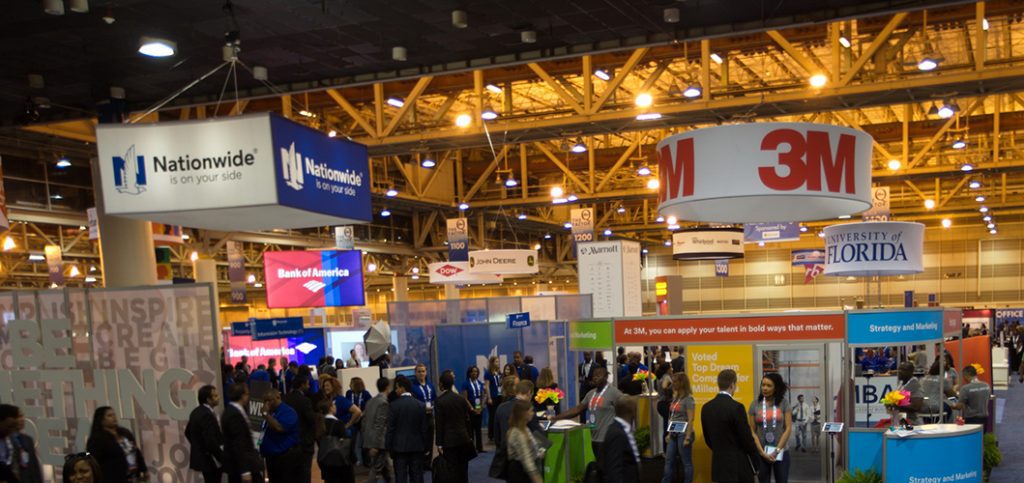
An inside look last year’s NBMBAA Career Exposition.
The conference is also highlighted by several notable guest speakers, including former CNN and Today Show personality Tamron Hall, celebrated sports journalist Kevin Blackistone, political strategist Symone Sanders, popular actress Tia Dashon Mowry-Hardrict, and many more.
Beyond the Career Exposition and illuminating figures attending, the five-day event is packed with almost too many world-class events to keep track of: from the Scale-Up Pitch Challenge that features $65,000 in cash prizes, to the first ever higher education exposition, and the black tie Impact Awards Dinner, which will feature the aforementioned Tamron Hall, Girls Trip star Larenz Tate, as well as local Philly icon D.J. Jazzy Jeff.
Over the next several days, the conference will also host countless industry discussion panels, with topics like: International Business: Doing Business in Africa—Entrepreneurship Meets Social Investment; Entrepreneurship: Taking the Franchise Route; Education & Workforce Development: Coalition Building—The Power of Partnership; Marriott Ownership Session: Investment and Ownership Opportunities in the Hotel Industry; Financial Prosperity: How to Retire by 40, and much more.
For information on the event, including schedule, registration opportunities, and more, head to the official National Black MBA Association website. Official NBMBAA members will receive a discount if they wish to attend the Philadelphia event.
Highest Paid Starting Salaries for Toronto MBA Grads
Earning an MBA in Toronto can be a practical decision for a myriad of reasons. Forbes named Canada the best country for business in the G20, with Toronto as its formal financial and business capital. It stands to reason Toronto may be one of the strongest areas for business not just in North American, but around the world as well. Its advantageous position close to the U.S. border makes the city a hotbed of international commerce, and as the fourth largest city on the continent, Toronto provides a wealth of opportunities for motivated professionals.
As though these reasons weren’t incentive enough to pursue higher education in Toronto, the city has the second highest quality of life in North America, according to the Mercer Quality of Living Survey. The city’s vital university system is full of talented and aspiring industry leaders ready to launch their own careers, readily taking advantage of everything the city has to offer.
For those of you planning to pursue your MBA in this cultural and fiscal epicenter, we’ve laid out which school grads have the highest starting salaries in the city.
The Highest Paid Toronto MBA Salaries
Ivey Business School—Western Canada University
Graduates from Ivey Business School will not be disappointed with the opportunities made possible by their degree. In 2016, 90 percent of graduating MBA students looking for jobs had received an offer by September and, by December, an impressive 96 percent of students were fielding offers. The average starting salary for grads in 2016 was $104,007 ($84,098 USD). The base salaries ranged from $40,000 to $192,000 ($32,344 to $155,255 USD), with the higher end of this range going to students who pursued consulting jobs. Since this program is just one year long, the high average starting salaries for students indicate a considerable return on investment, in terms of both money and time. Bloomberg BusinessWeek also ranked Ivey’s MBA as the best MBA program in Canada for the past three years.
YOU MIGHT ALSO LIKE: Toronto’s Best Nonprofit MBA Options
Rotman School of Management—University of Toronto
Those looking for an MBA education that will provide ample chance to earn a generous starting salary may be impressed with the possibilities open to Rotman School of Management grads. The average base salary for graduates in 2016 was $92,524 ($74,819 USD). The 2016 class had an employment rate of 80 percent within three months of graduation and an 85 percent employment rate after six months. The range of starting salaries for the class of 2016 went as high as $214,737 ($173,486 USD) in the legal services industry. Moreover, the Financial Times has named Rotman the best business school in Canada every year for over a decade.
Schulich School of Business—York University
An average starting salary of $91,860 ($74,282 USD) for the class of 2016 makes a Schulich School of Business an ideal place for motivated students to jump-start their careers. With 89 percent of MBAs from the class of 2016 hired within three months of graduation, Schulich grads clearly have a competitive edge in the business community. Schulich’s program is also renowned for its flexibility. Students can switch seamlessly between part-time and full-time enrollment, and can choose to accelerate their program for the opportunity to earn their degree in just eight months.
Executive MBA
Zicklin Executive MBA Program Structure
Students in the “full-service” Baruch College Executive MBA program at the Zicklin School of Business can earn their degree in 20 months but allows candidates to pursue an education while balancing a full-time work schedule. Classes are mostly held on Saturdays from 8:30 a.m. to 5:15 p.m. There are two Executive MBA options available at Zicklin: the traditional program, which allows students through the lock-step program alongside an experienced, diverse cohort of professionals, and the Executive MBA in Healthcare Administration program.
Curriculum
There are six trimesters in the Executive MBA at Zicklin, and students take nine credits for each of the first five trimesters, which amounts to roughly three to four courses a trimester. Classes for the 20-month program start in September and culminate in June, with no classes in July or August. However, those starting the program must enroll in the first-year “Boot Camp,” which begins in July.
The three-week camp takes place on Tuesdays and Thursdays from 6 to 9 p.m., and on Saturdays from 8:30 a.m. until 4:45 p.m. Meals will be offered during boot camp days.
During the second year of the program, Executive MBA students must participate in an international study tour, in which they will meet with international students, executives, and other business leaders. Previous international study tour trips have been in Brazil, Vietnam, South Africa, and other select countries. Please note, on-campus activities and classes may be impacted by COVID-19.
The Baruch College Executive MBA 2020 Class Profile
The average age of students in the Baruch College Executive MBA is 37. The program is 47% female and 53% male. In addition, students average 13 years of work experience.
Career Outcomes for the Baruch College Executive MBA Graduates
The Graduate Career Management Center helps Zicklin graduate students find employment and plan their careers. Resources offered by the center include workshops, one-on-one career advising, mock interviews, and online databases and career tools. In the fall and spring semesters, the center organizes On-Campus Recruiting sessions for both full-time positions and summer internships. Graduates of the Baruch College Executive MBA at the Zicklin School of Business were hired by companies such as American Express, AT&T, Bloomberg LP, Ely Lilly & Co., Frito-Lay, HarperCollins Publishers, IBM, The Interpublic Group of Companies, JPMorgan Chase & Companies, JetBlue Airways, LeFrak Organizations, New York Public Library, PwC, Thomson Reuters, UBS Securities, and Walt Disney Television.
Tuition, Scholarships, and Financial Aid
The total cost of the Baruch College Executive MBA at the Zicklin School of business is currently $86,500, which includes all tuition, fees, textbooks, meals, boot camp orientation, workshops, and the majority of pay for the international study trip.
All applicants to any Baruch undergraduate or graduate program are automatically considered for merit-based scholarships from Baruch College of up to 50 percent of tuition. Graduate students at Zicklin may also apply for external fellowships through organizations such as the American Association of Hispanic Certified Public Accountants, the Consortium for Graduate Study in Management, and USA Education/USA Funds.
Zicklin graduate students are eligible for Federal Direct Loans and in some cases may be eligible for Federal Work-Study. Students can also explore private loan options.
Admissions
Those considering applying for the EMBA program must submit a pre-application form, which will be reviewed by the admissions committee. This application is used to see if candidates qualify for the program and is not a traditional application process. Candidates are expected to have anywhere from five to seven years of previous work experience and an undergraduate degree from an accredited university. Those who qualify must also submit GMAT or GRE scores, which are optional, transcripts, two letters of recommendation, a sponsor’s agreement (even if applicants have no official sponsor), proof of English proficiency, a current resume, and a one-time $75 application fee.
Once an application is complete, qualified candidates are invited for an admissions interview. At this time, all interviews are being conducted virtually via Skype or Zoom. Once an application is complete, it is reviewed by the program’s admission committee. Admissions decisions are disseminated according to the notification dates listed below.
2020-2021 Baruch College Executive MBA at the Zicklin School of Business Deadlines
| Application Round | Submission Deadline | Decision Notification |
| Round 1* | February 1 | March 1 |
| Round 2* | April 1 | May 1 |
| Round 3 | June 1 | Rolling |
Full-Time MBA Battle: San Francisco vs. Seattle
Whether it’s 49ers vs the Seahawks or Apple vs Microsoft, it may seem like there are a lot of differences between San Francisco and Seattle. Putting these minor dissimilarities aside, however, and you’ll find common ground between two of the northwest’s biggest cities: Both metros are known as top locations for prospective MBAs looking to earn an advanced business degree full-time. Continue reading…
Which Boston MBA Programs Offer the Best Return on Investment?
A stellar résumé, well-targeted recommendation letters, and a strong GMAT score may be vital in earning a spot in your dream business school, but one factor that may weight heavier than everything else is the return on investment. Will the school be worth it? How successful are its alumni? How do employers feel about the school name on a diploma?
A person needs to know that their time—and money—will amount to success and a well-paying job. If Boston‘s the city for you, here are the top four business schools if return on investment, or ROI for short, is on your mind.
#1) Harvard Business School
This prestigious university might come as no surprise as first on our list. But it’s not at the top for nothing. Home of one of the world’s first MBA programs, Harvard Business School is a bit separate from the main campus itself in Cambridge, sitting in Boston’s Allston neighborhood.
Unsurprisingly, the program’s ROI is highly-competitive. Tuition at HBS currently costs around $72,000. That’s a lot more than how much a student might pay per year elsewhere, even without considering the usually stellar track record of HBS grads. Graduates in 2016 had median base salaries of $135,000 with a median signing bonus of $25,000. Sixty-eight percent received a signing bonus. That’s a lot of people. And it’s a pretty sure thing. Work hard at Harvard, and it appears you’re sure to reap the benefits.
READ MORE: HBS Announces Largest-Ever Scholarship Donation
#2) Sloan School of Management – MIT
At MIT’s Sloan School of Management, students can feel certain they’ll succeed after graduation. Individuals, of course, may determine their own success, but Sloan knows how to get its students there. The school is known for its business offerings, particularly its global Sloan Fellows program. There, students can walk away with an executive MBA in just one year. Sloan has been growing its educational base since 1914 when its “Engineering Administration” course set a business tone in the technical school.
Currently, tuition at MIT Sloan sits at $71,000, which isn’t much less than Harvard’s. The median base salary for 2016 graduates was $125,000, with salary ranging anywhere from $40,000 to $200,000.
The business school can provide a myriad of opportunities, especially through its various centers and initiatives, which focus on, science, innovation, medical research, and more.
#3) D’Amore-McKim School of Business – Northeastern University
This business school is tucked in Boston’s arts neighborhood, the Fenway Cultural District. Northeastern University offers multiple campuses, but the MBA programs take place at the D’Amore-McKim School of Business.
MBA students pay the same tuition for classes online or in person: $1,560 per credit hour. For a year, that’s roughly $28,080—significantly less than the aforementioned Harvard and MIT. So if you’re not ready or can’t afford to drop a bunch of money on costs, D’Amore-McKim might be the program for you. Its graduates go on to make $81,000 a year, which is nearly 66 percent more than yearly tuition. The top base salary for recent alumni is $115,000.
These employment opportunities come quickly: 96 percent of D’Amore-McKim alumni accept a job offer within three months of graduation.Companies like Zipcar and Hasbro, Inc., hired graduates last year. Resources like the Graduate Career Center and the school’s clubs can help students make it. Clubs like the Emerging Markets Club gives students the hands-on experience they need to succeed.
#4) Questrom School of Business – Boston University
The Questrom School of Business at Boston University offers a variety of MBA programs. The first was launched in 1925, but the school went on to add an executive MBA, public and nonprofit MBAs, evening MBAs, and health sector MBAs.
A full-time MBA tuition costs $51,916 at Boston University. The prices vary depending on which program a student decides is right for them, which contributes to the school’s placement on the list. For example, the executive MBA costs nearly double the traditional MBA rate. However, alumni do go on to make that money back. In 2016, graduates’ mean base salary was $100,820. About 92 percent of graduates accepted a job offer just three months after earning a degree, with nearly all taking an internship. Places like General Motors and IBM hired recently hired Questrom grads.
You could be next. But it’s up to you to decide what school makes the most sense for you. You’re onto something with Boston though. The seafood will never end, and the accents will always entertain. Find the city’s best executive MBA program or explore its one-year MBAs if you need just a little bit more info.
Top MBA Recruiters: Time Warner
We live in a time where media conglomerates are larger than ever, tracking everything people watch, listen to, and stream. While this can be a pretty scary thought, it means these companies deal with lots of money, and companies that deal with lots of money need lots of MBA talent. One of these media conglomerates is Time Warner Inc. Continue reading…
The Highest Paid MBA Starting Salaries in London
The draws of London may be too numerous to list: from a booming global economy to robust historic and cultural attractions, the city has a little something for everyone.
It’s likely no surprise that the city would take the sixth spot in The Atlantic‘s list of the “World’s Best Cities for Business, Life and Innovation.” While a number of factors were taken into consideration for creating the list, London’s ranking was likely boosted by its top spot in financial/business employment, and its 2nd overall spot in attracting job-creating foreign investment.
Such attributes make London an ideal spot for those pursuing or graduating with MBA degrees. As a center for global business, the opportunities for someone with the skills of an MBA are seemingly endless. However, the same vibrancy that attracts visitors across the world to London can make it an incredibly expensive city to live in from day-to-day, and those considering a move will need to consider both the cost of the city as well as earning potential.
Thankfully, London is home to some of the top MBA programs in the world, boosting the hireability and earning potential of graduates.
The Highest Paid London MBA Salaries
Saïd Business School – University of Oxford
Students at the Saïd Business School at the world-renowned University of Oxford take their education to countries around the world and into a wide variety of industries. Even considering the uncertainty brought to businesses in UK with the ‘Brexit’ referendum, the salaries of Oxford MBA graduates continue to rise from from the previous class to 2016 graduates. The average class salary for recent MBA grads at Saïd was £69,132, or $93,404 US—an increase of almost $13,000 from the previous year. These salaries varied slightly with industry, with salary averages for fields like finance and consulting reaching $96,273 and $98,458, respectively.
London Business School
With a staggering 96 percent of MBA graduates from London Business School accepting an offer within just three months of graduation, LBS graduates don’t need to wait long to start their dream job, with hopefully a salary to match. For MBA graduates of LBS, the average salary could range between £32,000 and £151,000, with the mean coming at an impressive £77,600. Salaries varied slightly between industries and also by region, with LBS graduates staying in the UK making slightly less than those venturing to North America.
READ MORE: “London Business School Launches More Flexible MBA”
Judge Business School—University of Cambridge
Graduates from the University of Cambridge Judge Business School will quickly realize the benefits of having such a well-regarded degree: about 92 percent of students from the graduating class received job offers within three months of earning their degree. The Cambridge MBA data also reveals the degree’s success in aiding those as they transition to a new career—98 percent of the 2015 graduating class switched either country, function, or industry sector just two years after graduating. The typical salary of Judge graduates increased greatly for the MBA class of 2015—likely a result of fluctuations in the pound after the Brexit decision—at a current average of £99,000, or, $133,792 USD.
Cass Business School—City University London
The Cass Business School at the City University London ranks among the top three schools for career development in the UK, a ranking reflected in the data of MBA graduates from the University. About 87 percent of MBA graduates reported a 53 percent increase in their salary. The average salary for MBA graduates at Cass is $99,000, with an even greater increase for those with an Executive MBA degree, at $130,000.
London Business School Welcomes New Dean Ortalo-Magné
The London Business School newest dean has arrived, heading to London from Wisconsin.
Dean François Ortalo-Magné will be the school’s ninth dean. He previously served as dean at the University of Wisconsin-Madison from 2011 to 2017, according to a press release. Now, he’ll be embarking on a tenure with the London Business School.
“In a challenging world, LBS has the opportunity to show the way,” he said. “I am excited for the journey.”
While at the University of Wisconsin-Madison, Ortalo-Magné built the university’s faculty, raised money, and improved the school’s brand. Inclusion and diversity were some of his key pillars as dean. Though Ortalo-Magné was previously based in the United States, his career actually began in London, attending the London School of Economics and Political Science in the mid-90s. He taught at the London Business School for six months as a visiting research scholar as well.
The previous dean, Sir Andrew Likierman, leaves his eight-year position, but he’ll continue teaching at the London Business School as a professor of management practice in accounting. Ortalo-Magné is excited to follow in his foot steps.
“I feel particularly grateful for the opportunity to succeed Sir Andrew, who has created such great momentum in the school,” Ortalo-Magné said. “I am energized by how engaged everyone is: our alumni, students, staff, and faculty members. They are all ambitious for the school, and this makes it an inspiring place to be.”
However, the new dean isn’t the only one excited about this change. So is the school’s Governing Body Chairman Apurv Bagri.
“François is ideally placed to take us forward and build on the great work carried out by Sir Andrew,” Bagri said. “The school goes from strength to strength, and I’m confident that François will continue to enhance its reputation for academic excellence and the delivery of world-class degree and executive education programs.”
Choosing the Best Business School for Consulting
If you are a prospective MBA applicant looking to business school as a way to enter or accelerate your career in the consulting industry, you are certainly not alone. According to the 2017 Prospective Student Survey conducted by the Graduate Management Admissions Council (GMAC), consulting is once again the most sought-after postgraduate industry, with 33 percent of applicants surveyed citing consulting firms as their destination of choice. The consulting function, too, is a top draw. One in four indicated it as their chosen job function, after just marketing/sales (30 percent) and finance/accounting (28 percent).
With so many MBA graduates vying for roles in the consulting field, one of the best ways to distinguish yourself is by going to one of the business schools best known for training top-notch consultants. Of course, this requires thorough research and a deep knowledge of individual school programs. Lucky for you, Clear Admit has done some of the legwork.
Consulting Continues to Be a Top Draw for MBAs
Finance—and investment banking in particular—took a hit following the financial crash of 2008. And the tech sector has been gaining ground as a top destination for MBA grads. But along the way, the consulting industry has held its own, with MBAs clamoring to work for both towering giants in the field as well as at an increasing number of boutique firms now in the marketplace.
What’s the allure? Part of it is the diverse work. Consultants get to think creatively and solve problems, analyze both the big picture and the details, and work on teams juggling multiple assignments. Top salaries don’t hurt either. Recent MBA graduates taking jobs at firms like McKinsey & Company, Boston Consulting Group (BCG), and Bain & Company—known as ‘the MBB firms’ in industry parlance—reported base salaries in 2017 of between $147,000 to $152,500, with additional signing bonuses of $25,000, according to managementconsulted.com, an online resource for the consulting industry.
Choosing the Best Business School for Consulting
Determining which leading business school will best prepare you for a career in consulting requires looking at a range of factors. A logical place to start is by examining career outcomes at individual schools, both in terms of summer internships and full-time jobs. If possible with the available data, you also want to get a sense of how well a school has done placing career-switchers, namely those without prior consulting experience, in coveted consulting roles, since barriers for entry for these grads are understandably higher than for their counterparts who have already worked in the field.
It can also be instructive to see which of the powerhouse consulting firms donate to which leading business schools. Finally, it helps to understand how a given school goes about teaching its students to be consultants, what role experiential learning plays, whether you can hope to learn directly from superstar professors in the field, and what extracurricular resources are in place to help you land your dream consulting gig.
Consulting at UVA Darden
The University of Virginia’s Darden School of Business sent more of its MBA graduates into consulting than any other U.S. school, with 38 percent of the Class of 2016 pursuing work in the consulting industry and 38 percent choosing a consulting function. By comparison, Harvard Business School (HBS) sent 25 percent of its 2016 graduates into consulting, and Stanford Graduate School of Business sent just 16 percent.
As for the top recruiting companies at Darden, Boston Consulting Group snapped up 18 members of the Class of 2016, followed by McKinsey & Company (14), PwC (13), and Accenture (10).
In terms of pay, the average base salary for a Darden MBA heading into consulting was $135,771 with a signing bonus of $26,927. While this isn’t the highest salary in the industry—it falls a few thousand dollars short of offers reported by students at schools like Kellogg School of Management—it is the highest average salary for all Darden MBAs.
Darden’s Classroom, Curriculum, and Professors
As for how Darden trains its MBAs to enter a career in consulting, the school offers a career track concentration in strategy consulting. This concentration is designed to immerse MBA students into the consulting process by helping them identify and deepen their consulting skill sets.
Darden is also known for its case study method of teaching and learning. This method confronts Darden MBA students with challenging, real-life business situations and teaches them how to analyze each situation to come up with a solution—just as they will be called upon to do in a consulting career. Over the course of MBA students’ two years at Darden, they’ll complete in more than 500 case studies on a variety of topics, industries, and diverse environments.
As for Darden’s faculty, many of the school’s professors have an in-depth knowledge of consulting with a breadth of research dedicated to all facets of the field. For example, Samuel E. Bodily, a professor of business administration, teaches “Decision Analysis” to first-year students and “Management Decision Models” to second-year students while also consulting with many corporations, utilities, and government agencies. And Scott. C. Beardsley, Darden dean since 2015, spent 26 years at McKinsey & Company before joining the school.
Outside the Classroom
Darden is home to the Consulting Club, a student organization designed to support students interested in the consulting industry. The club regularly holds events such as consulting industry panels, networking 101, consulting conferences, case competitions, mock interview sessions, internship preparation workshops, and more. And many large consulting companies are club sponsors, including Deloitte, AT Kearney, Bain & Company, EY, and Accenture.
In addition, there are also a variety of consulting projects for MBAs to participate in. These projects help MBAs learn how to develop business plans, create financial forecasts, and perform marketing analysis. For each project, teams of three to six students will work with corporations, global businesses, or non-profit organizations to provide strategy evaluation and planning services.
INSEAD For Consulting
In terms of sheer numbers, no school sends more students into consulting jobs than INSEAD. According to the school’s latest 2016 MBA employment report, 46 percent of INSEAD MBAs took a job in the consulting sector and 48 percent assumed a consulting function. That’s a whopping 479 students accepting a position as a consultant—almost half of the 999 students who filled out the employment report.
INSEAD’s MBA graduates took jobs with such companies as McKinsey (which hired 125 INSEAD grads in 2016), BCG (67), Bain (48), Strategy& (24), and Accenture (16). And it’s no wonder the major players like INSEAD. Many alumni hold prominent positions such as chairmen, CEO, or senior leader at these same top consulting firms.
As for where these consulting grads work, they’re spread out around the world. More than 100 consulting graduates took jobs in Western Europe, 41 of those in the United Kingdom. Another 83 graduates headed off to consulting offices in Asia Pacific, including 23 each in Singapore and Australia. But the single most attractive country for INSEAD consulting grads was the United Arab Emirates, which drew 42.
INSEAD also features an alliance with the University of Pennsylvania’s Wharton School, allowing INSEAD students to spend one of their five periods studying at the U.S. school. INSEAD has a similar campus exchange with Kellogg as well. These exchanges afford INSEAD students access to those schools’ career management centers as well, which can be especially valuable in terms of making connections to U.S. recruiters for students who are interested in working in consulting in the United States after graduation.
In terms of what its consulting grads command in salary, INSEAD also shows strong numbers, albeit lower than Kellogg and Darden. For 2016, the overall mean salary in consulting was $107,300 USD, the overall median salary was $109,500 USD, and the overall annual median sign-on bonus was $25,000, with 76 percent of salaries coming with a sign-on bonus and 83 percent with a performance bonus around $24,500.
Proud of its success in helping career switchers enter new industries, INSEAD shares data about how many of its graduates heading into consulting started out there and how many used business school to make a pivot. Of those graduates taking jobs in consulting after INSEAD, 67 percent held pre-MBA roles in consulting. But 34 percent of those who were financial services professionals also successfully switched to consulting, as did 56 percent of former technology, media, and telecommunications professionals and 38 percent of former corporate sector professionals.
How Consulting Is Taught at INSEAD
INSEAD’s accelerated 10-month MBA is composed of five, eight-week periods built around core courses and electives and concluding with an exam, essay, and/or project. There is no preferred teaching method at INSEAD; instead, individual professors choose the method they feel is best. However, no matter the teaching style or technique, each class is sure to have lively exchange opportunities and diverse study groups.
In terms of core courses, students will start out their first eight weeks with an “Introduction to Strategy” course and will continue their learning into the next period with “Process & Operations Management.” As for electives, over a dozen courses are offered under the Strategy heading including the “Strategy Lab,” which provides MBA students with a practitioner’s view of how consultants tackle projects.
Who Trains Consultants at INSEAD
There are more than 25 resident strategy professors across INSEAD’s three campuses, as well as around a dozen visiting faculty members. Of these, several are former consultants, bringing experience straight from the trenches at McKinsey, Monitor Group, and Accenture, among other leading firms.
Two INSEAD professors, W. Chan Kim and Renée Mauborgne, authored a best-selling book called Blue Ocean Strategy, which spawned the 2007 launch of the INSEAD Blue Ocean Strategy Institute. The institute offers several programs and electives that support the development of aspiring consultants, including a mini-elective, “Blue Ocean Strategy Simulation,” that lets students apply the trademark Blue Ocean Strategy toward managing a fictional company.
Beyond the Classroom at INSEAD
INSEAD’s accelerated 10-month program can make it hard for some student groups to gel, but despite this obstacle, the INSEAD Consulting Club seems to have an active campus presence. Much like at Darden, the Consulting Club at INSEAD provides resources to help INSEAD students prepare for consulting interviews and careers, including workshops, networking, and recruiting events with consulting firms. It also publishes the INSEAD Consulting Club Handbook, free to Consulting Club members, which offers an overview of the industry, profiles of individual firms, and sample cover letters, résumés, interview tips, and practice case questions.
INSEAD also features regular consulting case competitions, including the A.T. Kearney Global Prize Competition. As many as 15 teams from INSEAD compete against each other, with winners advancing to represent INSEAD in a regional competition against seven other European business schools. The winning European school then battles the winning North American school for the Global Prize.
The Best Nonprofit MBA Programs in Los Angeles
Many believe that business is inherently selfish. However, there are a plethora of nonprofit organizations that could not exist without the skills of talented administrators, dedicated solely to the business and financial aspects of the company. MBA skills are coveted in the nonprofit industry, as they can make a massive contribution to helping the organization thrive.
Many MBA programs take into account the need for overlap in business and social change. Below, we’ve laid out three of the best Los Angeles programs for MBAs looking to pursue nonprofit work.
The 3 Best Los Angeles Nonprofit MBA Programs
Anderson School of Management—UCLA
The UCLA Anderson School of Management MBA program offers a specialization in Social Impact for students hoping to use their business acumen to have a positive influence on their community, both locally and globally. This program provides ample opportunities for students to better parts of the world through innovation and creative problem-solving, positioning them to pursue a career in the nonprofit arena, if that is their goal.
International Field Study Projects are an integral part of the nonprofit learning experience. For their second year Capstone Projects, all Anderson MBA students can choose to pursue the Applied Management Research (AMR) program. The AMR Projects give students a chance to work with companies and nonprofits to solve a strategic problem. Many of the AMR Projects help struggling communities. In 2017, a group of students tackled building a model to improve screening and treatment of non-communicable diseases to a rural village in South Africa.
SEE ALSO: “The Most Affordable Los Angeles MBA Programs”
Marshall School of Business—USC
Marshall School of Business at USC partnered with Zelikow School of Jewish Nonprofit Management at Hebrew Union College-Jewish Institute of Religion to provide students with the chance to obtain a dual degree (MBA/M.A.) in Business Administration and Jewish Nonprofit Management. The M.A. emphasizes both nonprofit management and Jewish studies. This challenging track requires 88 units of coursework as well as two years of fieldwork. Students in this program can take a 12-month internship in Sacramento, CA or Washington DC while continuing to attend classes in these areas. This track is ideal for students pursuing a career in the Jewish nonprofit sector, and includes classes like Nonprofit Management and Leadership and Grant Writing Practicum.
Peter F. Drucker and Masatoshi Ito Graduate School of Management—Claremont Graduate University
The Peter F. Drucker and Masatoshi Ito Graduate School of Management dual degree in Public Health and Business Administration is an excellent option for students seeking a career in the nonprofit healthcare field. This MBA/MPH allows students to combine business acumen with an exhaustive knowledge of the intricacies of public health over the course of three years. Though this program does not exist exclusively to educate students in the nonprofit sector, the combination of healthcare and business education makes these grads a perfect fit for health care-related nonprofit work. Students will also benefit from the knowledge of professors like Jay Prag, Ph.D., who serves on the board of directors at LINC Housing, a nonprofit low-income housing developer, and whose research often delves into the nonprofit world. This program will enable students to use business skills to increase the effectiveness of healthcare institutions in their communities, as well as internationally.
The Boston vs. Washington DC Full-Time MBA Battle
Choosing the right city for your MBA program can be a bigger choice than it seems: given the connections and opportunities an MBA typically provides, the city where you pursue your degree will likely be the same city where your career begins and grows.
Even if you’ve narrowed down your business school search to the east coast, you’ve still got a number of top metros to choose from. So regardless if you’re looking south to Washington, D.C., or north to Boston, both metros will likely offer a number of benefits for up-and-coming business professionals.
Both D.C. and Boston offer a number of exceptional full-time MBA programs, giving a prospective MBA a lot to think about. Below, we’ll break down some of the biggest differences in location, programs, and job placement for each metro.
Location
As long as you can deal with snow, Boston is a multicultural hub of business that covers a variety of industries, from startups to high tech and the creative economy. Massachusetts is home to 30 Fortune 500 companies, with massive corporations like General Electric and Liberty Insurance Group centered within Boston. However, as the city continues to grow and improve, the cost of living is also climbing, with Boston ranking eight overall as the most expensive city in the United States.
If you are looking to use your business acumen in a government setting, there are few places better to go than the nation’s capital. With fifteen companies making the Fortune 500 list in the Washington DC metro area, there are a number of opportunities for MBAs to put their business skill to work, even outside of government agencies, with companies like Wal-Mart and Exxon Mobile leading the list. However, DC even outranks Boston for cost of living, ranking as the third most expensive city in the United States.
Washington Full-Time MBA Programs
The Washington DC metro has more than 35 higher education institutions with post-bachelor programs for business students. Featuring some of the top ranked MBA programs in the country, many of the DC programs focus on professional integrity and ethics, attempting to reflect its location in the country’s capital. Many of the MBA programs here also focus on placing business within a global context, encouraging students to gain real-world experience outside of the classroom to gain a better understanding of the global business community.
Full-Time MBA Programs in DC Include:
- George Mason University School of Business
- George Washington University School of Business
- Kogod School of Business – American University
- University of Maryland R.H. Smith School of Business
Boston Full-Time MBA Programs
The Boston metro features some of the top ranked and oldest business schools in the world, which focus on placing students within the global economy and encouraging study abroad opportunities that allow students to get hands-on experience in international business. Given Boston’s reputation as a growing business hub, many of the top jobs in the city may require an MBA.
Full-Time MBA Programs in Boston include:
- Sloan School of Management – MIT
- Harvard Business School
- Questrom School of Business – Boston University
- Sawyer Business School – Suffolk University
- Carroll School of Management – Boston College
Cost of MBA Programs
Cost can be an important consideration when choosing a degree program. The average tuition costs of the Washington DC programs mentioned above is roughly $82,090, though the number may be slightly less for local students. In Boston, the range may be slightly higher. Harvard Business School can cost up to $122,000 per year, but other quality programs in the Boston metro can also be found as low as $91,040.
Job Placement and Salary
The cost one is willing to spend on an MBA is often largely determined by the potential salary that can be made after obtaining the degree. Given that both Boston and DC are among the U.S. cities with the highest cost of living, salary may be an important determination in selecting a city to start your career. Thankfully, both cities offer the chance for high earning potential. According to PayScale, Boston MBA graduates can earn anywhere from $53,725 on average to $173,940. In Washington DC, where there is a slightly higher cost of living, salaries can range from $58,402 to $147,715.
Rutgers Professors Talk Digital Era Work-Life Balance in New Book
In an era of constant contact, how can workers create a stable work-life balance? In a new book, two Rutgers Business School explore the dilemma.
Toronto’s Best Nonprofit MBA Options
It’s fair to say that the finance and consulting industries are the most popular for business school grads. But what about non-profits and social enterprises—where do they rank? While some assume that an MBA and working for a nonprofit do not go hand-in-hand, that’s not the case. Continue reading…
The MetroMBA Team
Eliot Ingram
Co-Founder and CEO

Eliot Ingram has spent over 21 years in the field of MBA admissions. In 1994, Eliot helped launch MBA Multi-App, which quickly became the leading software for applying to business schools. In his senior management role, he built strong relationships with admissions officers at the top 50 business schools in the U.S. He also gained exposure to tens of thousands of MBA applicants, which allowed him to develop a strong understanding of the admissions process from both the student and the school perspective.
After graduating with an MBA from Wharton in 1999, Eliot formed a consulting firm advising early-stage technology companies on their marketing and business development strategies. In late 2001, Eliot co-founded Clear Admit with Graham Richmond. For the past sixteen years at Clear Admit, Eliot’s combination of admissions expertise, marketing experience and editing skills has enabled him to help hundreds of applicants gain admission to top MBA programs. In addition, Ingram has helped grow Clear Admit into a leading source of news, advice and resources for MBA applicants. In 2013, through Eliot’s vision, Clear Admit launched the site Metro MBA.
Ingram holds a BA in Economics & Political Science from Swarthmore College and an MBA from the Wharton School.
Graham Richmond
Co-Founder
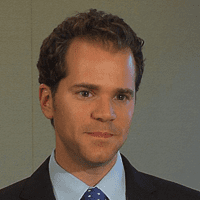
Graham Richmond has worked in the MBA admissions space for over 20 years. After beginning his career at MCS Multi-App, an educational software startup selling business school application software products, Graham earned his MBA from the Wharton School at the University of Pennsylvania. He then joined Wharton’s admissions office, where he evaluated MBA applications and conducted admissions interviews. In 2002, Graham partnered with Eliot Ingram to launch Clear Admit, and eventually Metro MBA. Graham also co-founded the Association of International Graduate Admissions Consultants in 2006 and served as the organization’s President for several years.
An expert in MBA admissions, Richmond is frequently called upon by leading media such as The Wall Street Journal, Bloomberg Businessweek, Forbes, and The Washington Post to discuss trends in the field. He is also regularly invited to speak to admissions directors from leading MBA programs at the annual conference of the Graduate Management Admissions Council.
Graham holds a BA in Art History from Swarthmore College and an MBA from the Wharton School.
Michael Tarantino
Executive Director, Business Development
Michael Tarantino joined MetroMBA in 2017 after spending close to ten years in enrollment management at three different institutions, including six years in Graduate Management Education (GME) & three years as a Director of Recruiting & Admissions. Since transitioning to MetroMBA, Michael has been able to utilize his expertise in the field of admissions, recruiting and higher ed marketing to assist schools and corporations in identifying and attracting talent. Michael was born and raised on Long Island and currently resides in New Jersey with his wife, son and daughter.
Michael holds a B.S. in Business Administration & M.B.A. in Marketing, both from Sacred Heart University in Fairfield, CT.
Harvard Business School Announces Largest-Ever Scholarship Donation
Harvard Business School (HBS) yesterday announced its largest-ever donation for scholarship aid—a $12.5 million pledge that will help support students who were the first in their families to attend college, among others. The pledge comes from HBS alumni Jonathan Lavine, Co-Managing Partner of private investment firm Bain Capital, and his wife Jeannie (both MBA ’92).
The first $10 million will support the Lavine Family Fellowship Challenge Fund, a matching fund designed to motivate others to donate in support of the school’s scholarship needs. The remaining funds will endow two $1 million fellowships—the Lavine Family Fellowship and the Herbert J. Bachelor Fellowship—and provide an additional $500,000 to the HBS Fund for various school priorities.
The Lavine’s have stipulated that, wherever possible, the fellowships be made available to first-generation college graduates in honor of Jeannie’s father, Herbert Bachelor, who was the first in his family to go to college. Bachelor worked 40 hours a week while an undergraduate at Harvard College to cover expenses but still accumulated a large amount of debt, which grew larger still as he earned his MBA from HBS (’68).
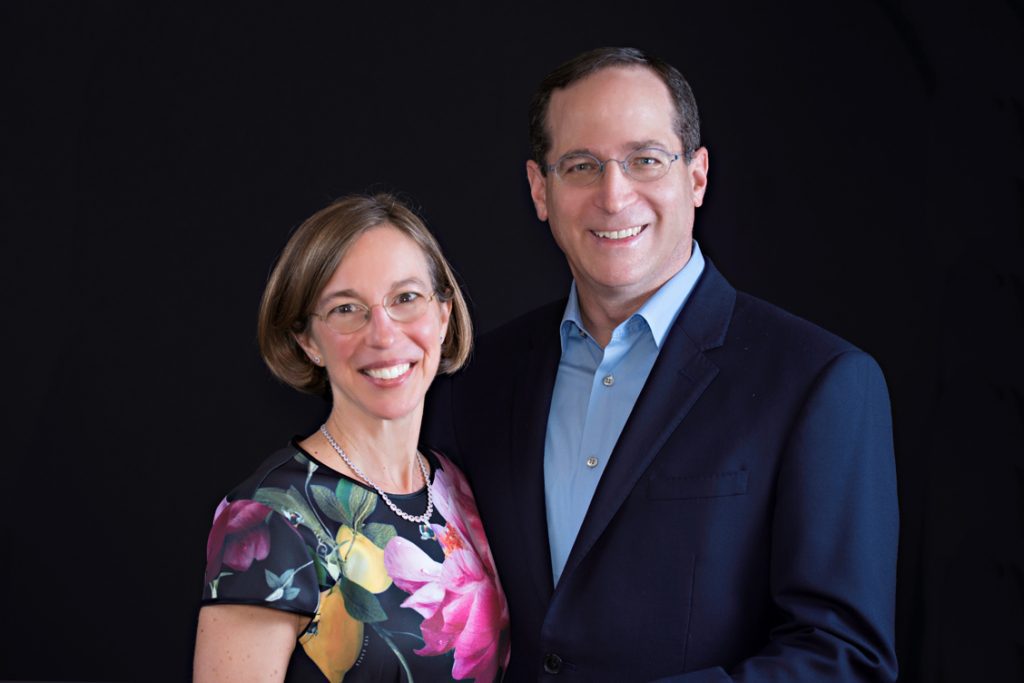
Jeannie and Jonathan Lavine
“It was his dream to have his own children be able to attend college without the stress of holding down a job or the added burden of student debt upon graduation,” said Jeannie Lavine in a press release announcing the gift. She followed in her father’s footsteps, obtaining both her bachelor’s and MBA degrees from Harvard. “He was able to make that dream come true for my siblings and me, and Jonathan and I would like to pay that forward and give other people the same opportunity, especially those who are the first in their family to attend college,” she continued. “We know that intellect is not distributed based on income, and neither should a top education.”
HBS Admissions Is Merit-Based, Need-Blind
HBS prides itself on its merit-based admissions policy, which means that an applicant’s ability to afford tuition does not factor into the admissions process. Once students are admitted, fellowship grants are awarded based solely on financial need. Approximately half of the HBS class receives financial aid each year—$37,000 per student on average—and the school provided $35 million in financial aid to MBA students in the 2016-17 academic year.
“We are thrilled about this gift and grateful to the Lavine family because students who are the first generation in their family to go to college represent an important and needed perspective in the classroom,” HBS Managing Director of Admissions and Financial Aid Chad Losee told Clear Admit. “We admit based on merit and support financially based on need, which makes us different from other business schools,” he added. “Everyone here is here for a reason: because of their talent and merit and what they bring as a leader.”
Close to 10 percent of the HBS class each year is comprised of first-generation college graduates, according to Losee. “We hope this gift and this announcement will help get the word out to people from all different backgrounds who otherwise may feel like HBS isn’t accessible to them,” he said.
Earlier this year, HBS announced another fellowship likewise designed to support students with limited financial means. The Forward Fellowship, announced in July 2017, will award between $10,000 and $20,000 per year to students from lower-income backgrounds above and beyond HBS need-based fellowships. Unlike the HBS need-based fellowships, which are awarded based on students’ individual financial situations, the new Forward Fellowships take into consideration the applicant’s family circumstances and financial history so the available funds can be distributed to those who need them most. These can include not only students who grew up in lower-income households, but also those who plan to provide financial support for their parents during their graduate school careers or after obtaining their MBA.
“We want HBS to be the place where the best leaders from anywhere in the world can come and thrive and be successful,” Losee said. “This most recent gift from the Lavines is great and continues to tell the story that we want to support students when they get here.”
Lavine Family Philanthropic Roots Run Deep
The Lavines’ gift adds to the financial aid resources available to HBS students and builds on the couple’s history of philanthropy, which has long been focused on creating a more equal playing field for all through access to quality education. Jonathan serves as chair of the national Board of Trustees for City Year, an organization focused on reducing the high school dropout rate in U.S. cities. And the couple has also made major contributions to uAspire, an organization focused on providing financial resources to attain a postsecondary education; LIFT, a national nonprofit focused on breaking the cycle of intergenerational poverty; and numerous aid programs at Columbia University, where Jonathan also serves as vice chair of the Board of Trustees.
In addition, they are long-time benefactors and actively involved at Harvard. In 2011, they established the Lavine Family Cornerstone Scholarship Fund to support four undergraduates annually through Harvard’s financial aid program. In 2012, they established the Lavine Family Humanitarian Studies Initiative at the Harvard T. H. Chan School of Public Health to support the training and education of humanitarian relief workers. They also both serve on the dean’s advisory boards at HBS at the School of Public Health and co-chair the latter school’s capital campaign.
“We’re proud to support the work of great academic institutions, because we know first-hand the impact they can have on the world,” said Jonathan Lavine in press release. “There is no greater way to improve someone’s future than giving them access to high quality, post-secondary education. We spent a great deal of time discussing with Dean [Nitin] Nohria our passion for education and how inspired we are by my father-in-law’s journey and appreciative of the opportunity our parents provided us. As a result, we decided that this is the best way to bring those interests together.”
Financial Aid at HBS Is Personal
Losee notes that the newly established Lavine fellowships also help highlight how personal the financial aid process at HBS. “The Lavines will be matched with the individual students they are supporting,” he says. “They will meet them and can develop a mentoring relationship with them.” HBS also features an annual dinner that brings together all HBS donors and the students their gifts help support, he said.
Calling them “the lifeblood of the institution,” Professor Felix Oberholzer-Gee, Senior Associate dean of the MBA program, noted that gifts like the Lavines’ benefit not only the students who receive them but also the school as a whole. “They allow us to focus exclusively on filling our classrooms with the very best students,” he said in a release. “Our learning community is enriched by diversity in all its forms, and the fellowships we offer make it possible to bring people here from all walks of life around the globe.”
Learn more about the Lavines’ $12.5-million gift to support scholarship aid at HBS.
This article has been edited and republished from Clear Admit.
The Best Part-Time MBA Programs You Can Find in Seattle
For those who feel stuck in a middle management position, getting an MBA is a great way to get a leg-up on competition and put yourself in the running for higher-level opportunities. Unfortunately, a 9-to-5 job does not leave much time to devote to full-time learning.
However, the majority of MBA programs offer flexible, hybrid, or part-time options to accommodate all sorts of schedules. Below, we offer a rundown on the three best Seattle part-time MBA programs.
The Best Seattle Part-time MBA Programs
Seattle Pacific University School of Business, Government and Economics
At the Seattle Pacific University School of Business, Government and Economics, a full-time career does not have to deter motivated professionals from pursuing higher education. SPU’s part-time program consists of evening and weekend classes, and is designed to fit into a busy schedule. The university markets the program specifically to established professionals looking to integrate valuable MBA knowledge and skills into their current position.
The 45-credit program consists of ten advanced courses and five elective courses. Selecting an emphasis can help professionals tailor their education to their specific business needs. Students can choose any of the following emphases: Human Resource Management, Finance, Management, Cybersecurity, Data Analytics, Social and Sustainable Business, or Information Systems Management.
SPU’s part-time program might appeal to professionals who prioritize integrity and wish to make a positive contribution to their workplace and community. The university requires at least two ethics courses, and underscores the importance of morality in business.
Foster School of Business—University of Washington
The UW Foster School of Business has several options for aspiring MBAs who cannot commit to a standard full-time program. Foster offers an Evening MBA, a Hybrid MBA, and an Executive MBA to accommodate various lifestyles.
Forster’s Evening MBA takes three years to complete. Students in this program have an average of almost seven years of work experience, making this track a great option for more seasoned professionals looking to enhance their contributions at their jobs, or perhaps looking to make a late career change.
The Executive MBA (EMBA) at Foster may also be the right choice for those looking for a program that is compatible with full-time work and life obligations. Though not limited to executives, the EMBA is specifically designed for seasoned professionals seeking knowledge they can apply in their professional lives right away. The 21-month program provides the option to take classes weekly or monthly, to meet the needs of those who might have to commute.
If finding time to commit to on-campus courses seems difficult, Foster’s Hybrid MBA might be a good fit. The program involves quarterly in-person sessions, and the rest of the coursework takes place online.
Albers School of Business and Economics—Seattle University
Seattle University’s Albers School of Business and Economics offers students in the Professional MBA (PMBA) the chance to pursue their degree part-time. This program is ideal for students who want to tailor customize their education to fit their interests and career goals, as electives comprise two thirds of the 54 required credits. Students on the PMBA track must have a minimum of two years of work experience. Graduates of this program have gone on to high-level positions at companies like Nike and Microsoft.





